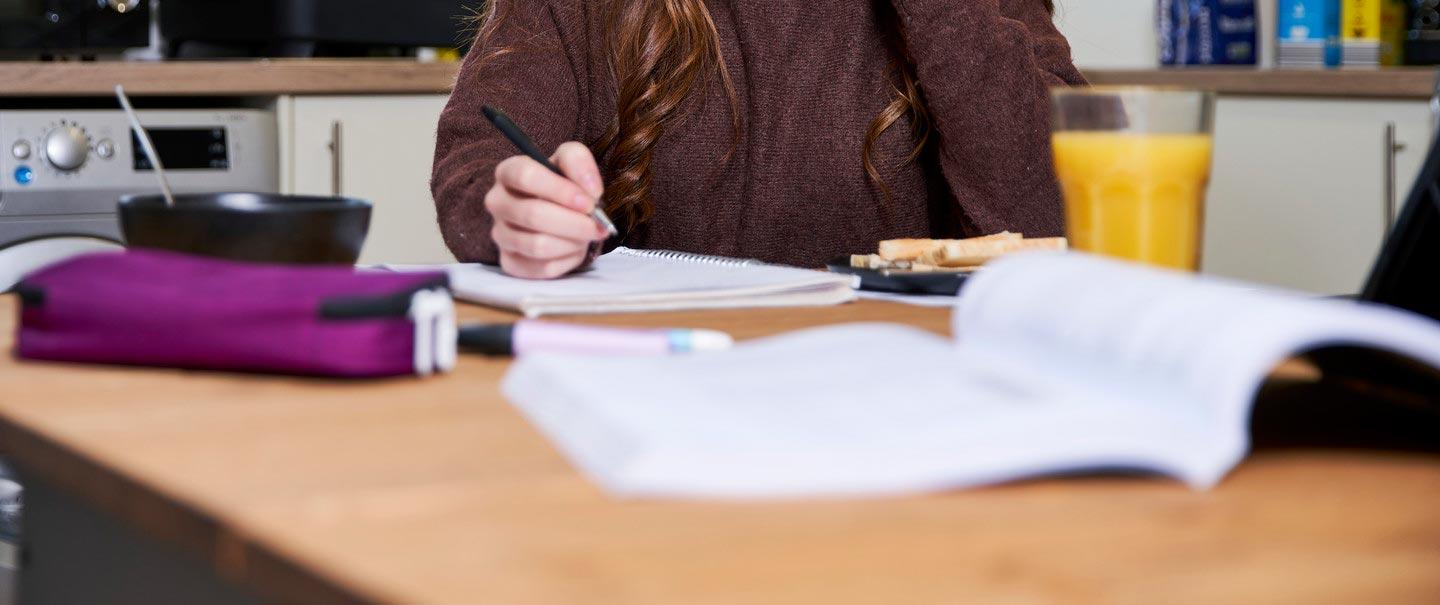
|![]() 5 minute read
5 minute read
Budgeting for beginners

Written by Zara Kelly, financial inclusion manager
Budgeting is not the most exciting topic. Making sure we have enough to last until pay day is so important for our mental health and wellbeing.
If we can save some money, that’s even better! I’d like to give you some ideas to help you find a budgeting method that works for you.
Your income and outgoings
Make sure you know what you have coming in, going out and what you are spending your money on. You can use our budgeting tool, paper and pen, or your banking app may help you to do this.
Paying your bills
Close to pay day
If you are paid at the end of the month, set your Direct Debits for first of each month. Direct Debits can be more regular, so if you are paid weekly or four weekly, set them to suit you.
This will help to prevent arrears, late payment fees and bounced Direct Debits. But make sure your provider knows which bill you are paying; if you pay too early, they may not link the two.
By Direct Debit
If you use cash to pay your bills, it’s easy to flutter away the change. Financial organisations cannot see where your money is going either. You could be limiting your chance of getting a mortgage in the future. If you can, Direct Debits are a great way to budget. They also show your bank/building society that you are responsible with money.
You can pay your rent by Direct Debit using My Home Account.
Change the date you pay
If you can’t do the above or think you’ll dip into your bill budget, most organisations can change your payment date.
Really think about how you spend and what you think will work for you. Here’s my method...
My method
I know, I support customers every day to get the most out of their money, so I should be great with it. That’s why I work in this role, I’ve learnt the hard way and want to share my tips.
I used to have one account and I would pay everything from there. It got to a point where I was using my overdraft monthly, costing me more money.
I spoke to the bank and opened another two accounts and a savings account with the local credit union. A credit union is a community savings and loans provider. They protect your money in the same way as banks and building societies.
I’m paid monthly and this is what works for me. It’s now known as jam jarring or enveloping – like my grandma used to do in the old days!
Account one: spending money
For everything from clothing and gifts to takeaway treats.
Account two: bills
I budget every bill. Every time an insurance or energy bill increases, I make sure it’s accounted for.
Account three: food
This covers food shopping, school meals, cleaning products and toiletries. If I overspend one week, I balance it the next.
Account four: credit union savings account
We may not all be able to save for extravagant holidays and jet skis, I certainly can’t. I save for holidays, kids school uniforms/trips, special occasions, and unexpected emergencies.
I decided to use a different account for savings. Although it’s still easy to access my money, I don’t see the balance every time I log into my banking app. It’s ‘out of sight, out of mind’ and it’s less tempting to dip into.
If you want to start saving, find your local credit union.
My money diary
Last working day of the month: payday
I’m paid into account one. I wait until the next day to spend anything, here’s why…
On the first of the month, standing orders from account one go into my bills, food and savings accounts.
Remainder of the month
This means all my bills (paid by direct debits) and essentials are covered. If I’m careful, I can feed my family. What I have left is for ‘treats’. Anything from a day out with the kids, to a sneaky chocolate bar!
What works for me, may not work for you. That’s ok, we’re all individuals. Tweet us to let us know what has worked for you and any money tips you have.